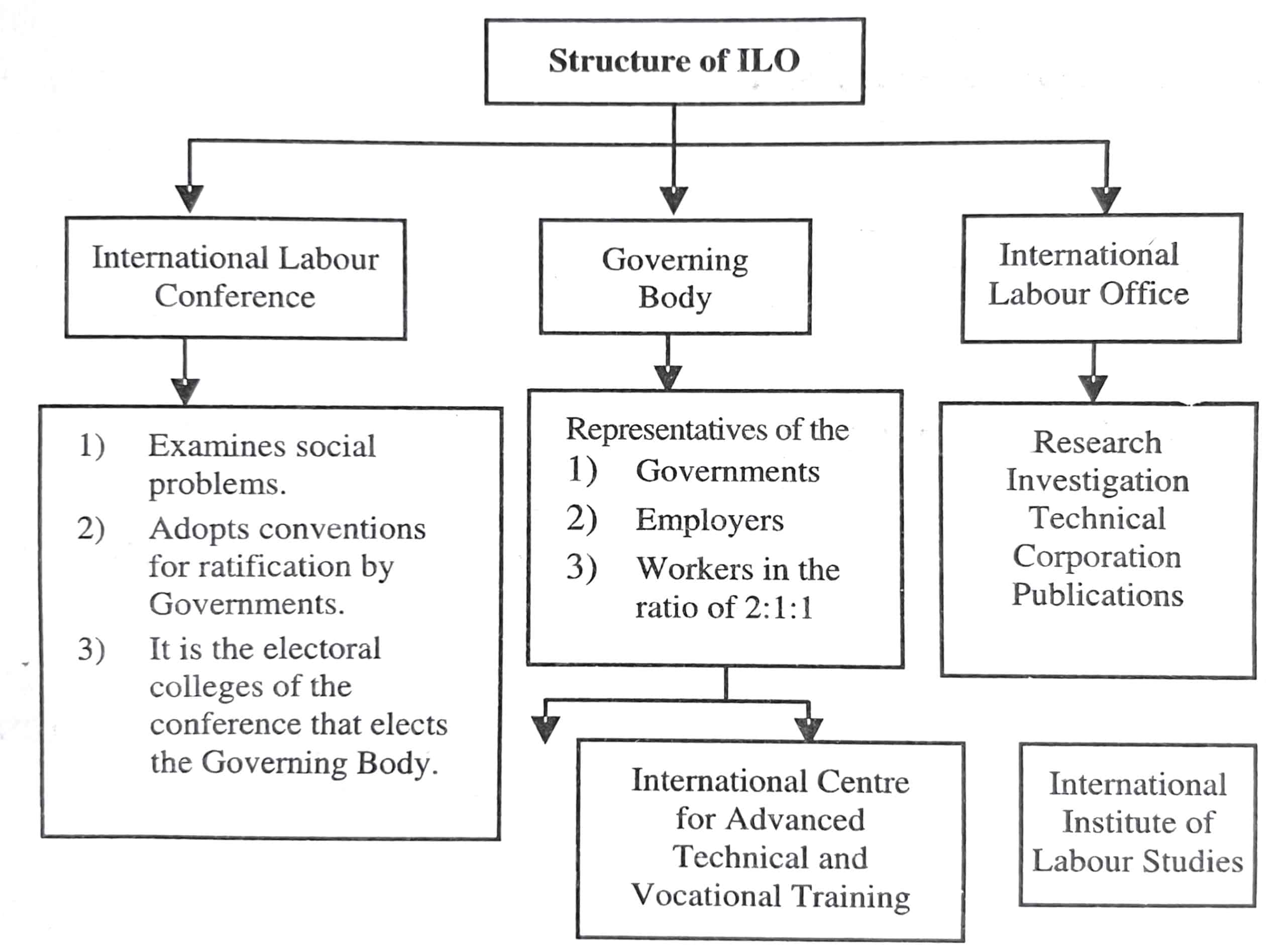The existence of synergy among employers’, governments and workers is very essential for the functioning of the ILO. The three primary bodies through which the ILO attains its objectives are discussed below:
International Labour Conference (ILC)
International labour conference is an agency of ILO which is responsible for making policies. International labour conference annually organizes its session. It is consist of four agents, such as governments, employers and workers in a ratio of 2:1:1.
Representatives are allowed to attend the session with at most two advisors on the agenda under consideration. The representatives can choose the committee they like to assist. These representatives can vote and contribute on the behalf of the committee, once they are registered to the committees of their choice.
Due to this wilful selection of committees, any specific committee might not have equal number of representatives. As a result, after taking votes all the voting of each group is ‘weighted’ so that the power of all the three groups is equal.
Officers of the committee are selected by the committee itself i.e., workers and employers’ vice chairperson, a chairperson (usually a government agent). Each of these groups (governments, workers’ and employers ) within the committee separately hold meetings where they present and discuss their opinions on the matter under consideration.
Generally, an observer from trade union organisation takes part in the workers group. This observer is usually selected as the secretary of the group and this position is informally treated as exclusive position in the entire session of the committee.
These committees include:
- The Finance Committee,
- The Credential Committee,
- The Drafting Committee,
- The Selection Committee,
- Application Committee for Convention and Recommendations, vi) The Committee on Standing Orders and
- The Resolution Committee
Functions of ILC (International Labour Conference)
Various functions of ILC are discussed as below:
- To select the president of the ILC.
- To elect the members of the governing body once in 3 years.
- To develop a framework of standards for International Labour.
- To take advice from the International Committee of Justice.
- To affix the extent of support by the member states.
- To study the Director General’s report on labour issues and offer suitable solutions for these issues.
- To determine the approximate expense budget suggested by the Director General and present it to the Governing Body.
- To authorise the procedures, functions and powers of Regional Conference.
- To employ committees for holding sessions on various other issues.
- To make changes to the Constitution based on any approval given by two-thirds member states (including more than or equal to 5 members out of 10 industrially significant states).
Governing Body
Governing body is another crucial arm of the International Labour Organisation. With the assistance of International Labour Office, the ILO enforce the decisions of ILC. Out of the total members of the body (56), half of them are government representatives (28) and both the workers and employers have 14 members each.
India has a secured a place among the 10 states of Chief Industrial Importance. This body holds meetings several times a year to discuss on the program of the ILO. The complete term of the body at the office is 3 years.
Functions of Governing Body
The governing body has several function to perform and some of these are discussed below:
- To examine the budget.
- To synchronise the working of the organisation.
- To take suggestions from the International Court of Justice after taking the permission of ILC.
- To keep an eye on the working of member states over the Conventions and Recommendation they have agreed upon.
- To assign the Director General of the office.
- To decide the agenda for every session and present the matter to ILC to choose the subjects to be added in the agenda.
- To decide the agenda, date and duration of the Regional Conference.
The member states provide their contribution in preparing the budget which is decided and fixed by the governing body. The contributions are particularly fixed for a specific member. India’s contribution towards the yearly budget of ILO is 2.77%.
International Labour Office
International Labour Office is the third and the last principle arm of the International Labour Organisation. The Chief Executive of the Secretariat is the Director General of the ILO. The term of the director general at office is 10 years (the governing body can extend this term).
Functions of the International Labour Office
Various functions of International Labour Office are discussed below:
- To perform its activities associated with the compliance of the conventions.
- To accumulate and disperse information related to international social and labour issues.
- To work out documents for the conference at the time of agency.
- To help the government by notifying the regulations depending on the judgements of the ILC.
- To introduce the publications that reveals the issues of industrial labour at international level.
